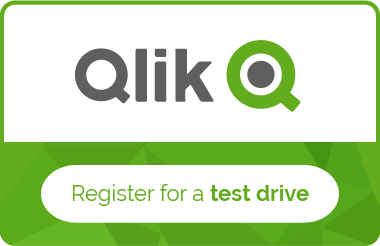Are Healthcare Providers Missing the Benefits of Business Intelligence?

It's arguable that the healthcare sector is the most critically important industry in our society, with thousands of people tirelessly working every day to help others in need. In Australia, the demands upon the system are increasing every year, with Deloitte noting that the ageing population and chronic conditions are expected to lead to over $182 billion in annual spending by 2018.
Given that building pressure, healthcare providers are understandably keen to investigate ways in which their operations can be improved. Innovations in technology have long been a part of medical treatment. Nowadays, however, digital development is having an impact on the wider industry, helping out in areas of administration and management, for example.
Wearable technology is monitoring our health, online and app-based doctor services are helping to ease the workload of busy medical professionals and telehealth is making treatment and follow-up care accessible for remote locations. These are all important innovations, however one development holds the ability to impact every facet of healthcare delivery - business intelligence (BI).
How is business intelligence improving healthcare?
Studies into how the implementation of BI solutions has had an impact on healthcare organisations have yielded some promising findings. In a 2015 survey - conducted in partnership by Qlik and HIMSS Analytics - more than 400 healthcare executives across North America, Asia Pacific and Europe were queried about their experience with BI.
While it was found that only a small number of healthcare organisations had thus far managed to get the full value out of their BI experience, those who were using the technology to the fullest extent had unlocked some powerful benefits. Respondents reported improvements spanning the business - from clinical concerns such as reduced length of stay and better chronic disease management right through to operational and financial efficiencies at the executive level.
"The BI benefits [for healthcare] are in quality improvements and driving out waste… and often, improving quality reduces unnecessary cost," said John Hoyt, executive vice president of HIMSS Analytics.
Positive results, to be sure, but for the industry to continue to experience the benefits of a BI solution, encouraging further adoption of the technology needs to be a priority.
Case study: The UK National Health Service
While Inside Info work with many local healthcare providers, it's interesting to look at the case of the UK's largest National Health Service (NHS) and how they managed their Qlik analytics initiative. A vast organisation collecting large amounts of disparate data, the NHS was in need of a solution to bring together their analysis into a cohesive form to access valuable insight. As part of the ongoing effort to meet national targets around quality, consistency and affordability of healthcare delivery, the NHS began to roll Qlik BI out to various areas of the business.
Much like the Qlik and HIMSS Analytics research outlined above, the NHS found the challenge of implementing BI into healthcare organisations came from getting management on board with the implementation. Almost two-thirds of stakeholders surveyed in relation to the deployment felt that management support was the most important factor for driving change. Meanwhile, only 41 per cent agreed that communication about the project across the organisation was adequate enough to ensure success.
Healthcare providers have a unique window of opportunity to embrace efficient new technologies like Data Discovery analytics that directly supports better healthcare and patient experiences at a lower cost. However, management support is critical as is a long-term strategy that provides intuitive self-service analytics in the hands of those that need it, to ensure high use of the system. Read this ebook to understand more about trends in healthcare and how you can respond with self-serve Qlik analytics: 6 Global Trends Sweeping Healthcare And How Analytics Help You Respond.
Related Articles
No results found
Please refine your search criteria and search again




